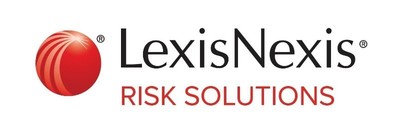LexisNexis Risk Solutions Study Reveals Lack of Transparency is Hindering Access to Services and Financial Inclusion
LexisNexis Risk Solutions released its 2022 Financial Transparency and Inclusion Report, indicating that 69% of financial institutions recognize transparency issues as barriers to underserved customers. The survey highlights that the unbanked and underbanked face significant challenges in onboarding due to inadequate data. Key findings reveal a strong interest in improving financial inclusion, with 64% citing identity verification as a challenge. Additionally, nearly 80% show interest in a global Customer Due Diligence utility. The pandemic has accelerated the adoption of AI in compliance and identity verification processes.
- 69% of financial institutions acknowledge transparency issues hinder underserved customers.
- Two-thirds of institutions are committed to supporting financial inclusion.
- Growing interest in data sharing to improve KYC processes—80% of institutions favor a global CDD utility.
- 90% of institutions report accelerated AI adoption for compliance due to pandemic pressures.
- 64% of respondents find identity verification a significant challenge in onboarding.
- Inefficient manual processes lead to rejection of potential customers not due to regulations but operational shortcomings.
Insights
Analyzing...
Sixty-Nine Percent (
ATLANTA, Sept. 15, 2022 /PRNewswire/ -- LexisNexis® Risk Solutions revealed the results of its 2022 Financial Transparency and Inclusion Report. The survey of banks, insurers and non-bank financial institutions in 13 countries and regions aims to better understand financial institutions' commitment to financial transparency and financial inclusion and the challenges they face in achieving these twin goals.
Financial inclusion is a global issue. According to The World Bank, there are 1.4 billion unbanked individuals globally and the financial services industry faces challenges decreasing this number. There are many factors affecting financial inclusion: Poverty, a thin credit file, living in a cash-based society, history of bad debt and/or a lack of financial education can all impede access to financial services.
One way to convert the unbanked to a banked customer is to improve financial transparency. Financial institutions need the ability to identify consumers and understand their risk profiles, both to maintain regulatory compliance and support extending financial services to consumers. The more institutions understand about consumers, the easier it is to offer appropriate financial services. However,
The report reveals that financial institutions can do more to achieve greater transparency, indicated by the
Key Findings from the Report:
- Financial institutions remain strongly interested in financial transparency and inclusion, with two-thirds of institutions expressing commitment to supporting financial inclusion.
- Many financial institutions turn away significant numbers of potential customers due to current Know Your Customer (KYC) processes. The most challenging customer onboarding hurdles faced by institutions lay within difficulties collecting and verifying customer information.
- Interest in data sharing to support KYC processes is growing. Nearly
80% of financial institutions express interest in a global Customer Due Diligence (CDD) utility, compared to just over70% in 2019. - The pandemic posed a challenge to financial crime and compliance operations at financial institutions, with large numbers of applicants seeking government assistance loans and financial institutions unable to verify identities in person due to lockdowns. However, it also led to financial institutions embracing more digital practices, with ninety percent (
90% ) of institutions reporting that the pandemic has accelerated adoption of Artificial Intelligence (AI) and other next-generation technologies.
"Financial institutions have clear responsibilities to verify customer identities and ensure compliance with national and international regulation," said Leslie Bailey, vice president, financial crime compliance, LexisNexis Risk Solutions. "Rejecting potential customers due to inefficient or manual processes rather than regulatory reasons can be detrimental to genuine individuals trying to access financial services. With robust data and the right technology and processes in place, institutions can help improve global rates of financial inclusion without compromising on compliance."
2022 Financial Transparency and Inclusion Report
LexisNexis Risk Solutions and research and advisory firm Celent designed the Financial Transparency and Inclusion Survey. Celent provided analysis around the results. The online survey was conducted in late 2021 and received 297 completed responses globally from c-suite and other senior leaders with responsibility for compliance, retail and commercial areas.
Download a copy of the 2022 Financial Transparency and Inclusion Report.
About LexisNexis Risk Solutions
LexisNexis® Risk Solutions harnesses the power of data and advanced analytics to provide insights that help businesses and governmental entities reduce risk and improve decisions to benefit people around the globe. We provide data and technology solutions for a wide range of industries including insurance, financial services, healthcare and government. Headquartered in metro Atlanta, Georgia, we have offices throughout the world and are part of RELX (LSE: REL/NYSE: RELX), a global provider of information-based analytics and decision tools for professional and business customers. For more information, please visit www.risk.lexisnexis.com and www.relx.com.
Media Contact:
Marcy Theobald
678.694.6681
Marcy.Theobald@lexisnexisrisk.com
![]() View original content to download multimedia:https://www.prnewswire.com/news-releases/lexisnexis-risk-solutions-study-reveals-lack-of-transparency-is-hindering-access-to-services-and-financial-inclusion-301623125.html
View original content to download multimedia:https://www.prnewswire.com/news-releases/lexisnexis-risk-solutions-study-reveals-lack-of-transparency-is-hindering-access-to-services-and-financial-inclusion-301623125.html
SOURCE LexisNexis Risk Solutions








